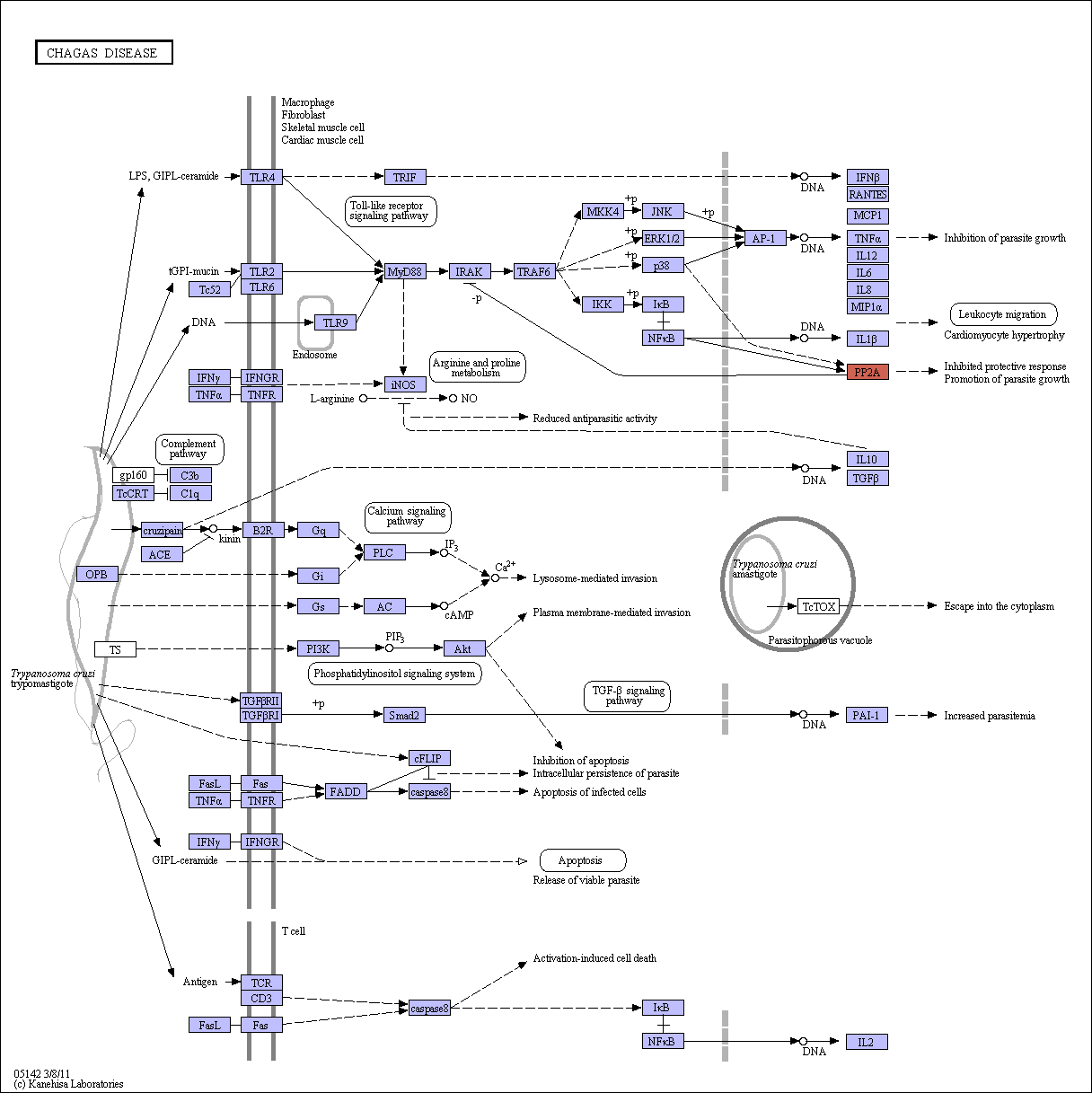|
Trypanosoma cruzi is an intracellular protozoan parasite that causes Chagas disease. The parasite life cycle involves hematophagous reduviid bugs as vectors. Once parasites enter the host body, they invade diverse host cells including cardiomyocytes. Establishment of infection depends on various parasite molecules such as cruzipain, oligopeptidase B, and trans-sialidase that activate Ca2+ signaling. Internalized parasites escape from the parasitophorous vacuole using secreted pore-forming TcTOX molecule and replicate in the cytosol. Multiplied parasites eventually lyse infected host cells and are released in the circulation. During these events, the parasites manipulate host innate immunity and elicit cardiomyocyte hypertrophy. T lymphocyte responses are also disturbed. |
 Chagas disease (American trypanosomiasis) - Reference pathway (KO)
Chagas disease (American trypanosomiasis) - Reference pathway (KO)

 Chagas disease (American trypanosomiasis) - Reference pathway (KO)
Chagas disease (American trypanosomiasis) - Reference pathway (KO)

